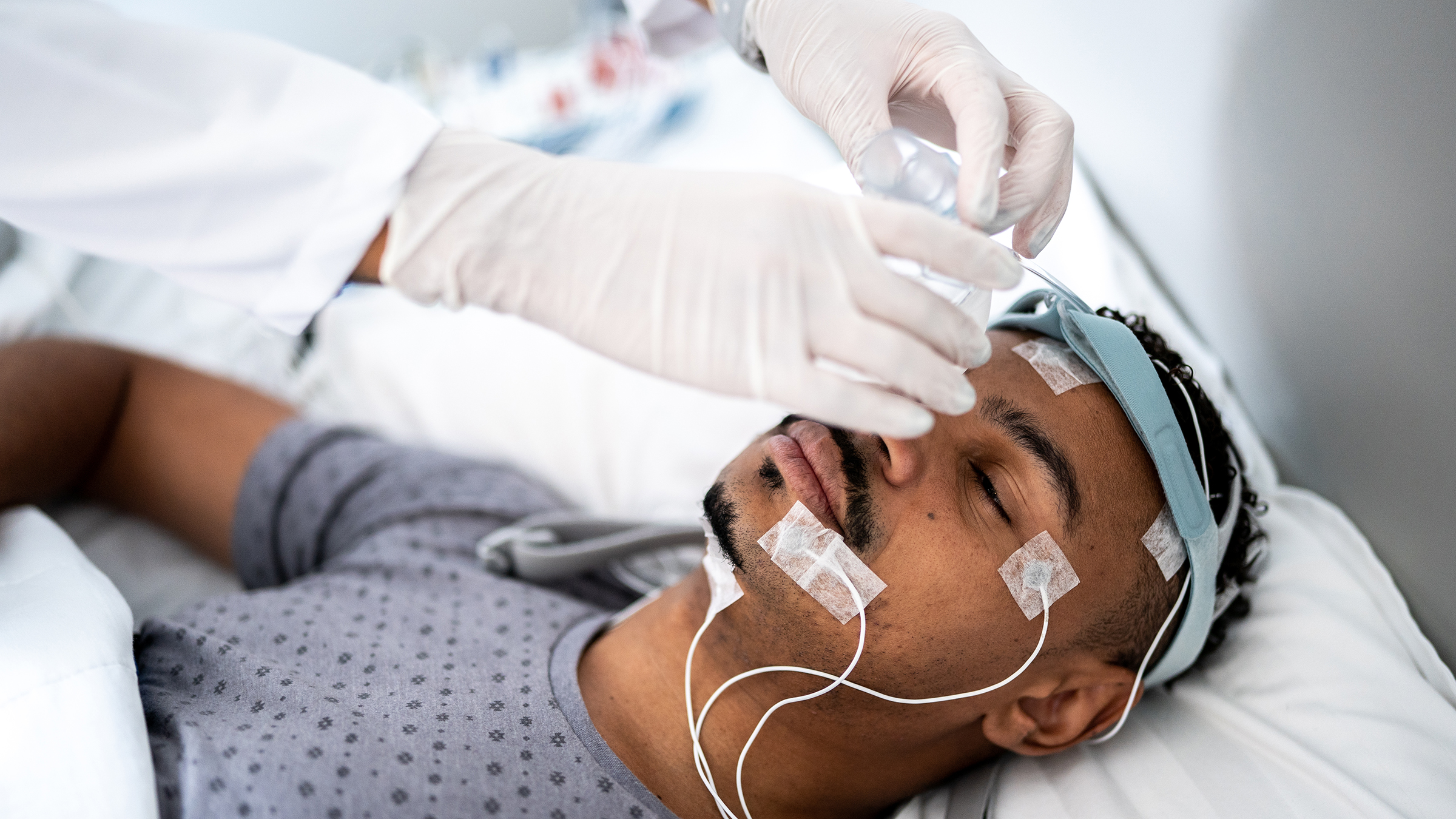Sleep deprivation is a condition in which an individual does not get enough sleep. The effects of sleep deprivation on health can be both short-term and long-term.
Short-term effects of sleep deprivation can include fatigue, irritability, decreased motivation, and difficulty concentrating. These symptoms can make it difficult for people to perform their daily tasks, such as driving or working. In addition, lack of sleep can affect cognitive performance, leading to impaired decision-making, memory and learning difficulties.
Sleep deprivation can also have negative effects on physical health. Studies have shown that lack of sleep can increase the risk of developing chronic diseases such as diabetes, heart disease, and obesity. This is thought to be due, in part, to changes in hormones that regulate appetite and metabolism that occur when the body is sleep deprived.

Sleep deprivation can also increase the risk of accidents and injuries, particularly those that are caused by lapses in attention, such as car accidents. In addition, studies have suggested that chronic sleep deprivation can lead to a weakened immune system, making it harder for the body to fight off infections.
Long-term effects of sleep deprivation are more serious and can have a significant impact on overall health and well-being. Chronic sleep deprivation is linked to an increased risk of developing a range of mental health conditions, including depression, anxiety and post-traumatic stress disorder. In addition, it is also associated with an increased risk of developing Alzheimer’s disease and other forms of dementia.
Sleep deprivation also has a major effect on the overall quality of life. It can lead to difficulty in personal and professional relationships, decreased productivity and general feelings of unhappiness and dissatisfaction.
It is recommended to consult a doctor if you have a chronic condition of insomnia and other sleep disorders, as well as maintaining a healthy sleep routine, such as avoiding screens before bed and keeping your sleeping environment dark and cool, to improve the quality of sleep.
How to Fix Sleeping Disorders
There are several ways to treat sleep disorders, and the best approach depends on the specific condition and its underlying causes. Some common treatments include:
Behavioural changes: Maintaining a consistent sleep schedule is one of the most important things you can do to improve your sleep. Going to bed and waking up at the same time each day, even on weekends, can help regulate your body’s natural sleep-wake cycle. Avoiding caffeine, nicotine, and alcohol close to bedtime can also help you fall asleep more easily.

Creating a relaxing bedtime routine can also be beneficial. This can include activities such as reading, listening to soothing music, or taking a warm bath before bed. This routine can help signal to your body that it’s time to sleep.
Medications: Hypnotic medications, such as zolpidem (Ambien) and temazepam (Restoril), are designed to help people fall asleep more easily. Melatonin receptor agonists such as ramelteon (Rozerem) mimic the effects of the natural sleep hormone melatonin. These medications can help regulate the body’s internal clock and can be used for both short-term and long-term treatment of insomnia.
:max_bytes(150000):strip_icc()/gettyimages-607034539-2000-1d7431ca9e504add9b674fc7eba15645.jpg)
It’s important to be aware that sleep aids should only be used on a short-term basis and under the guidance of a physician to avoid dependence and withdrawal symptoms.
Cognitive-behavioural therapy (CBT): This type of therapy is a widely recognized treatment for insomnia. It is based on the principle that negative thoughts and behaviours can contribute to insomnia. CBT teaches people to change the way they think about sleep and to develop more positive sleep habits. Techniques include stimulus control, relaxation training, and sleep restriction. The goal of this therapy is to help individuals to establish a more healthy sleep pattern and develop good sleep hygiene practices.
Lifestyle changes: Regular physical activity can help improve the quality of your sleep, as well as your overall health. Aim for at least 30 minutes of moderate-intensity exercise on most days of the week. Eating a healthy diet and managing stress are also important for overall health and well-being, which can contribute to better sleep.
Sleep clinic evaluation: In some cases, a visit to a sleep clinic may be recommended for a more complete evaluation and specialized treatments. A sleep study is a type of test that measures different aspects of your sleep and can help identify sleep disorders such as sleep apnea or insomnia. This can include polysomnography, home-based sleep study, or even portable sleep monitors.

It’s important to note that the best treatment plan for a sleep disorder will vary depending on the specific disorder and the individual. The medical professional will recommend the best treatment plan depending on the clinical evaluation and the results of any diagnostic tests.
In conclusion, sleep is vital for overall health and well-being. A lack of sleep can cause both short-term and long-term health problems that can affect both physical and mental health. It is important to get an adequate amount of sleep each night in order to maintain good health and prevent the development of chronic conditions.


I don’t even know how I finished up right here, however I thought this post was great. I do not realize who you might be however certainly you’re going to a well-known blogger in the event you are not already 😉 Cheers!
I appreciate, cause I found just what I was looking for. You have ended my four day long hunt! God Bless you man. Have a great day. Bye